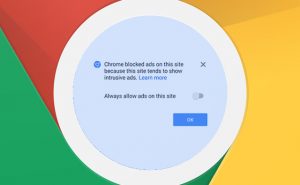Chrome’s new API brings an end to ad blockers

According to the main Chromium post, back from October 2018, the tech giant Google presented its objectives for 2019, which included an upgrade of extensions manifest version to Manifest v3. The entire concept was to improve security, personal privacy, performance and a variety of other concerns of the present platform by executing new APIs and etc. Nevertheless, only just recently developers started to discover that their extensions may lose their capability to work due to the fact that Chrome, and other Google’s browsers, from now on will only allow plugins to see Javascript, however not alter it in any way. This
for many extensions is an absolute necessity permitting them to replace or block scripts of the web’s content in order to provide their service.
The most affected apps are going to be ad blockers and other security, privacy-enhancing extensions due to the fact that their principle is to detect possibly unsafe infection code or normal ad codes and block them so it would not fill for the user to see or prevent further traffic to any dangerous sites. uBlock and uMatrix ad-blocking extension was the very first one to raise Supposedly taking payments from Amazon, Google, Microsoft to pass their advertisements.
All in all, no extension creators, nor users who are already utilized to viewing their online videos without having to endure 7 ads in 10 minutes, more than happy about the changes. While some developers will need to find new methods to make their products work, some are preparing for the battle with Google, who fortunately is really understanding about the current scenario. James Wagner, Chrome Extensions Product Manager, composed in the blog site:
We intend to make the shift to manifest v3 as smooth as possible and we’re believing carefully about the rollout plan. We’ll be in touch quickly with more particular details.





